Indian Navy Deploys Guided Missile Destroyers In Arabian Sea
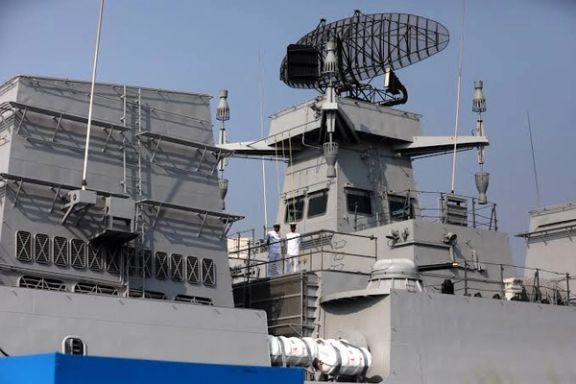
Following a recent drone attack launched from Iran on a merchant vessel off the Indian coast, India's navy will deploy guided missile destroyers in the Arabian Sea.

Following a recent drone attack launched from Iran on a merchant vessel off the Indian coast, India's navy will deploy guided missile destroyers in the Arabian Sea.
The deployment has been treated as a proactive measure aimed at "sustaining a deterrent presence." The Pentagon statement Saturday said the Chem Pluto, "a Liberia-flagged, Japanese-owned, and Netherlands-operated chemical tanker" had been targeted by "a one-way attack drone fired from Iran", raising alerts in the region which has become a flashpoint since Iran-backed Houthis announced they would attack all vessels in the Red Sea and surrounding area.
The Yemenis' announcement was made in the wake of the Gaza war, the Iran-backed Yemeni proxy aligning with Hamas in the wake of its war on Israel. Responding to the latest incident so close to its shores, the Indian Navy has deployed guided missile destroyers, including INS Mormugao, INS Kochi, and INS Kolkata.
The MV Chem Pluto, arrived in Mumbai on Monday, prompting an ongoing investigation by the Indian navy. Preliminary findings point to a drone attack on Saturday, and the navy has highlighted the need for further forensic and technical analysis to determine specific details, such as the type and quantity of explosive used.
A collaborative investigation into the attack is currently underway, involving various agencies, subsequent to the comprehensive analysis conducted by the navy's explosive ordnance team. The vessel's crew consisted of 21 Indians and one Vietnamese citizen.
On Monday, Iran's foreign ministry spokesperson refuted the US claim attributing the ship's attack to Iran, dismissing it as "baseless." The US has formed a more than 20-member coalition to protect the Red Sea which is the world's biggest oil passageway in a bid to calm tensions.
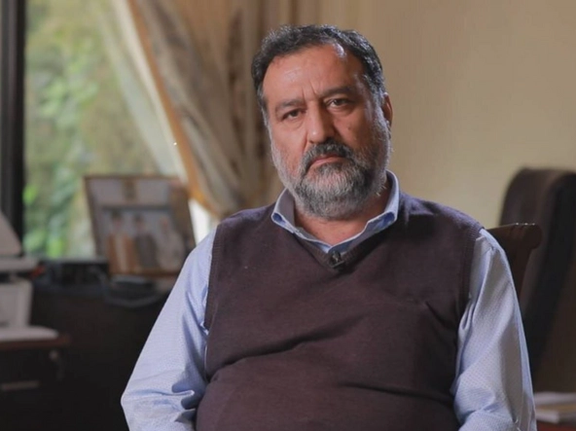
Iran's Defense Ministry spokesperson, Reza Talaei, has vowed revenge for the killing of the most senior IRGC commander since the death of Qassem Suleimani.
Allegedly the target of an Israeli airstrike, Razi Mousavi's death has caused fury in Tehran. Talaei specified that Tel Aviv should anticipate a "smart response," strategically designed to "thwart the Israeli regime's objectives".
President Ebrahim Raisi echoed the sentiment, pledging that “Israel will face the consequences for Mousavi's death.” Foreign Minister Hossein Amir-Abdollahian stressed that Tel Aviv “must brace for a formidable countdown.”
The Israeli airstrike near Damascus on Monday resulted in the death of Mousavi, the senior adviser in Iran's Revolutionary Guards responsible for coordinating the military alliance between Syria and Iran. IDF spokesperson Rear Admiral Daniel Hagari chose not to comment on foreign reports but emphasized Israel's commitment to safeguarding its security interests.
Iran's state television officially announced Mousavi's death, highlighting his association with Soleimani, the head of the Guards' Quds Force, killed by the US in 2020. Iran's ambassador in Damascus, Hossein Akbari, claimed that Mousavi, serving as a diplomat, was killed by Israeli missiles upon returning home from work. Foreign Ministry spokesperson Nasser Kanaani asserted “Iran's right to take necessary measures in response.”
The incident comes in the midst of the Gaza war, in which Iran-backed militias around the region in Syria, Iraq, Yemen and Lebanon, have joined the war on Israel waged by Hamas on October 7.
Israel, known for conducting attacks against entities it deems as Iran-linked targets in Syria, faces heightened tensions as Tehran's influence continues to grow in the region, stemming from its support for President Bashar al-Assad in the Syrian civil war.
Iran has deployed Guards as advisers to train and organize Shiite militia fighters from various countries, including Iraq, Afghanistan, and Pakistan, in support of the Syrian government. Additionally, Hezbollah fighters from Lebanon have closely collaborated with Iranian military commanders in Syria.

US launched air strikes in retaliation for injured soldiers in Iraq, and Iran vowed "revenge" for its top man in Syria killed allegedly by Israel, escalating Mideast tensions.
Monday began with the news of multiple attacks on US forces in Iraq by Iran-backed groups. Then Israelis killed a top IRGC commander in Syria, drawing a harsh response from Iran that Israel “will pay” for it. Then the Pentagon announced airstrikes on Iran-backed forces in Iraq, confirming that an American serviceman had been critically injured in the earlier attacks.
Belligerent statements came aplenty.
“These strikes are intended to… degrade their ability to continue attacks,” said US CENTCOM commander General Michael Erik Kurilla. "These strikes are intended to hold accountable those elements directly responsible for attacks on coalition forces in Iraq and Syria and degrade their ability to continue attacks. We will always protect our forces," he emphasized in a statement.
“The usurper and savage Zionist regime will pay for this crime,” read the IRGC statement on the killing of Razi Mousavi, its top military and intelligence man in Syria. “A line has been crossed,” announced Hezbollah in a typically vague, non-committal response.
Late Monday evening, as the US forces were hitting Iran-affiliated targets in Iraq, dozens of Basiji ‘ultras’ gathered in front of Iran’s National Security Council in Tehran to demand a swift and hard response to the Israeli killing of the IRGC’s commander in Syria.
Razi Mousavi (aka Seyyed Razi) headed IRGC’s ‘logistics’ and military coordination in Syria, which may be better understood as being in charge of getting weapons or money for Iran-backed forces in Syria and Lebanon.
The Iranian state TV interrupted its programs to announce his death, a rare event in cases of other casualties in Syria.
IDF spokesperson Rear Admiral Daniel Hagari said, "I won't comment on foreign reports, these or others in the Middle East," in response to a reporter's question at a nightly press conference. "The Israeli military obviously has a job to protect the security interests of Israel."
Images emerged of him alongside Qasem Soleimani, the former head of the IRGC Quds Force who was killed by a US drone attack in January 2020. The images were there as evidence of Mousavi’s stature and the significance of his loss.
“[Mousavi] was one of the best of brothers who worked to support the Islamic resistance in Lebanon for decades of his honorable life,” said Hezbollah in a statement. “We consider this assassination a blatant and shameless attack. And exceeding the limits.”
Razi Mousavi had been active in Syria for more than 25 years, and had escaped multiple Israeli attempts on his life, according to reports in IRGC-affiliated media.
His death is a clear blow to the IRGC’s operations in Syria and beyond. What is not clear is how the Iranian regime will respond beyond issuing threatening statements.
It may pressure its allied groups (in Yemen, Iraq, and Lebanon) to increase aggression against Israel and the US interests. Or it might strike directly, which would take the current conflict, that began with Hamas rampage of Israel and Israel’s onslaught on Gaza, to a whole new level.
So far, only Yemen's Houthis have officially entered the war in support of Hamas. Hezbollah, by far the strongest non-state actor in the region, has had no more than limited exchanges of fire with Israeli forces across the border. Perhaps most crucially, the Biden administration has tried hard to prevent a full-blown war that would drag its forces into a costly war during an election year.
All that could change if the regime in Iran follows on its words with action.
It did just that when Soleimani was killed. But the Hard Revenge promised to the hardline supporters of Supreme Leader Ali Khamenei, turned out to be a ‘token’ attack on a US base in Iraq, allegedly, after notifying the Americans.
That was a New Year's victory for Trump on January 3 2020. This could be a Christmas headache for Biden.
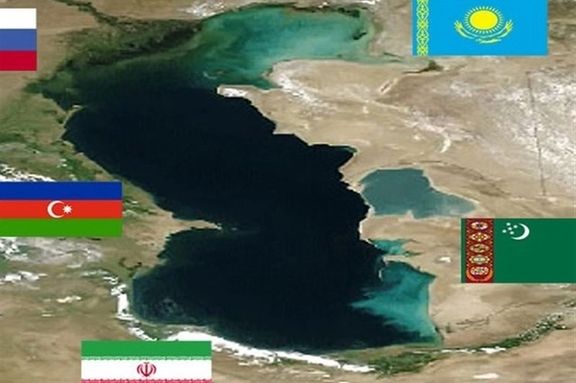
Iran’s minister of interior voiced concerns over the shrinking water level of the Caspian Sea, warning of its decline in coming decades.
Without mentioning the inattention of the regime to ecological issues, Ahmad Vahidi emphasized the importance of sharing global incident experiences to collectively address crises.
“If conditions continue in this manner, the Caspian Sea will dry up in the coming decades, and for this reason, a solution must be considered,” he added.
The decline in the world's largest lake is said to result from significant precipitation and the annual water flow. However, Iran has recently pointed fingers at Russia, particularly highlighting the closure of critical entrances, notably the Volga River, as a contributing factor to the crisis.
In August, Ali Salajegheh, the head of the Iranian Department of Environment, highlighted ecological challenges arising from a one-meter reduction in the Caspian Sea's water level over the past 4-5 years, with an average annual recession of 20 centimeters.
According to the Central Asia-Caucasus Analyst, “This will have significant and serious implications, including a decline of the sea water level, a considerable retreat of the sea and increase of the land and coastal area especially in upstream countries (Russia and Kazakhstan), challenges to the operation of ports and shipping, as well as environmental consequences, particularly the drying of protected areas and wetlands."
It underscores that the Caspian Sea's water level has diminished by one meter in recent years and could potentially plummet by 9 to 18 meters by the conclusion of the 21st century.
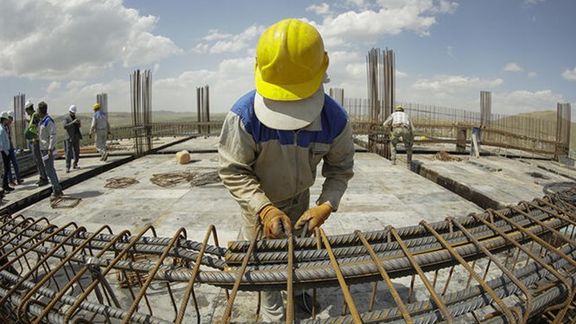
Hamid Reza Imam Gholi-Tabar, the inspector of the Supreme Assembly of Workers' Representatives, has admitted the country is among the world's worst for wages.
“Among the countries with the lowest wages for laborers in the world, Iran ranks only second to Venezuela,” Gholi-Tabar stated in a Monday interview with the state-run Tasnim news agency.
It is difficult to find the labor needed to fill the shortage of factories and manufacturing units due to low wages, the official said. He blamed the government for failing to fulfill its “inherent responsibilities” to support the “vulnerable members of society”.
Iran's raging inflation and stagnant economy have caused the minimum wage to fall so far behind that tens of millions have become "working poor."
In October, Etemad, an Iranian reformist newspaper, published an article highlighting the alarming growth of poverty among workers whose incomes have fallen below the poverty line. Reports in the paper indicate that workers' wages now only cover approximately 60 percent of their household expenses each month.
In accordance with Article 41 of the Labor Law, the Supreme Labor Council is responsible for determining the minimum wage for workers each year. Despite this, the government is not obligated to set wages per the figures published by the council. Based on its own interests, it increases wages. In recent years, the discrepancy has resulted in widespread labor protests.
A minimum wage increase, however, raises the overall cost for businesses, leading to layoffs or a reluctance to hire new employees.
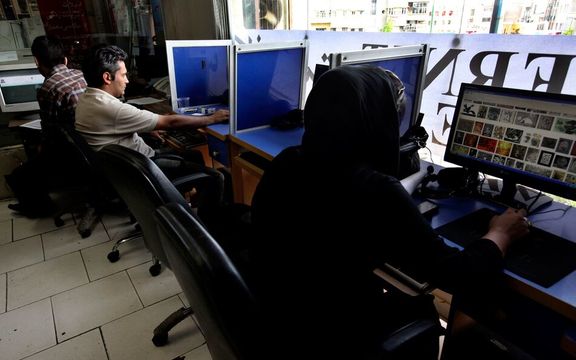
Internet companies in Iran have petitioned the government to increase their broadband and mobile tariffs by 100%, according to Faraz Daily, a pro-reform website.
This request comes at a time when users are experiencing low-quality connections and are forced to pay for expensive Virtual Private Networks (VPNs) and anti-filtering software to avoid the censorship imposed by the government.
For more than two decades, the clerical government has blocked thousands of websites and in recent year, most social media platforms. It also offers very slow Internet connection and often cuts service during protests.
Iran's Information and Communications Technology Minister, Issa Zarepour, stated on Monday that the increase in internet service rates has not yet been decided. He also reiterated his usual response to the issue by insisting that the increase would only happen "if the providers improve the internet quality". But users have long suspected that slow traffic is related to government actions and draconian controls.
Also, the adamant stance he takes on "better quality" might not be entirely genuine. Shargh Daily reported last month that Zarepour publicly opposes increasing Internet rates but behind the scenes is following up on it, neglecting the quality altogether.
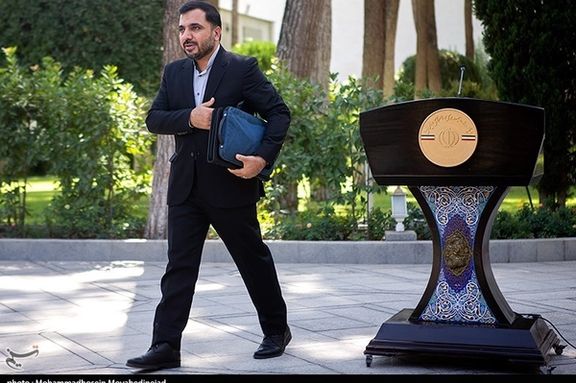
While President Ebrahim Raeisi promised free internet for the lowest income groups during his inauguration in 2021, the number of limitations on internet access and the price have gradually increased.
With these constraints in place, Iranian citizens are deprived of access to free information. Raisi's hardliner government has increased censorship. Numerous foreign and domestic websites, including reputable news outlets and social media platforms, have been added to the government blocking scheme.
The spiral of censorship measures has intensified since the beginning of the "Women, Life, Freedom" movement last year.
According to Freedom House, Iran was the Middle East's worst country for internet freedom in 2023 due mainly to severe and overzealous responses by authorities to nationwide protests.
However, the internet shutdowns and the filtering of popular messaging apps used by citizens continued even after protests subsided.
Legislators, such as Javad Nikbin, have alluded to a connection between those lobbying for internet censorship and those marketing tools that circumvent censorship, such as VPNs.
Lawmaker Jalal Rashidi Kouchi estimated that the financial turnover of VPN providers in Iran amounts to approximately 800 million to 1 billion dollars annually.
According to Kouchi, if the minimum monthly price of a VPN in Iran is $2, the country's citizens would be compelled to spend approximately $480 million annually to circumvent the regime's bans on such services as Instagram and WhatsApp.
But that is not the end of the story. Having a VPN active on your system will result in more data usage since some of that data is consumed by the VPN.
That amount according to the Farazdaily website means half of the traffic you buy from providers is consumed solely by using a VPN. And since the current administration has imposed more limitations, users are already paying more. Not just for more VPN but also more traffic.
With the providers asking for an increase in rates, consumers will be forced to pay yet another fee for "the most expensive low-quality service in Iran".